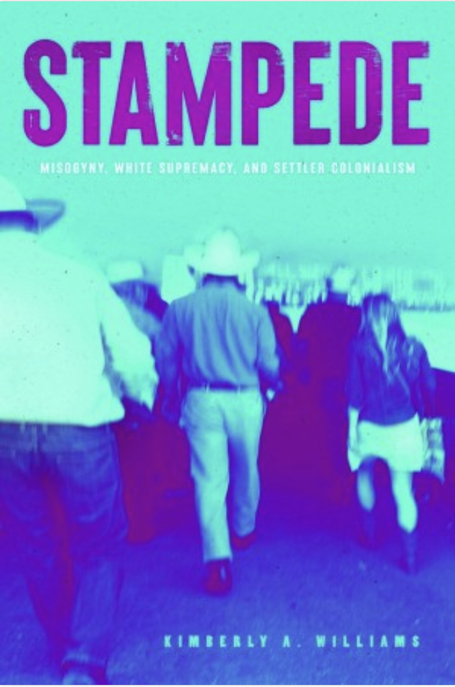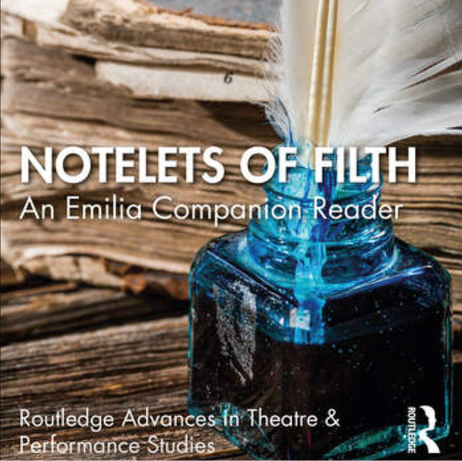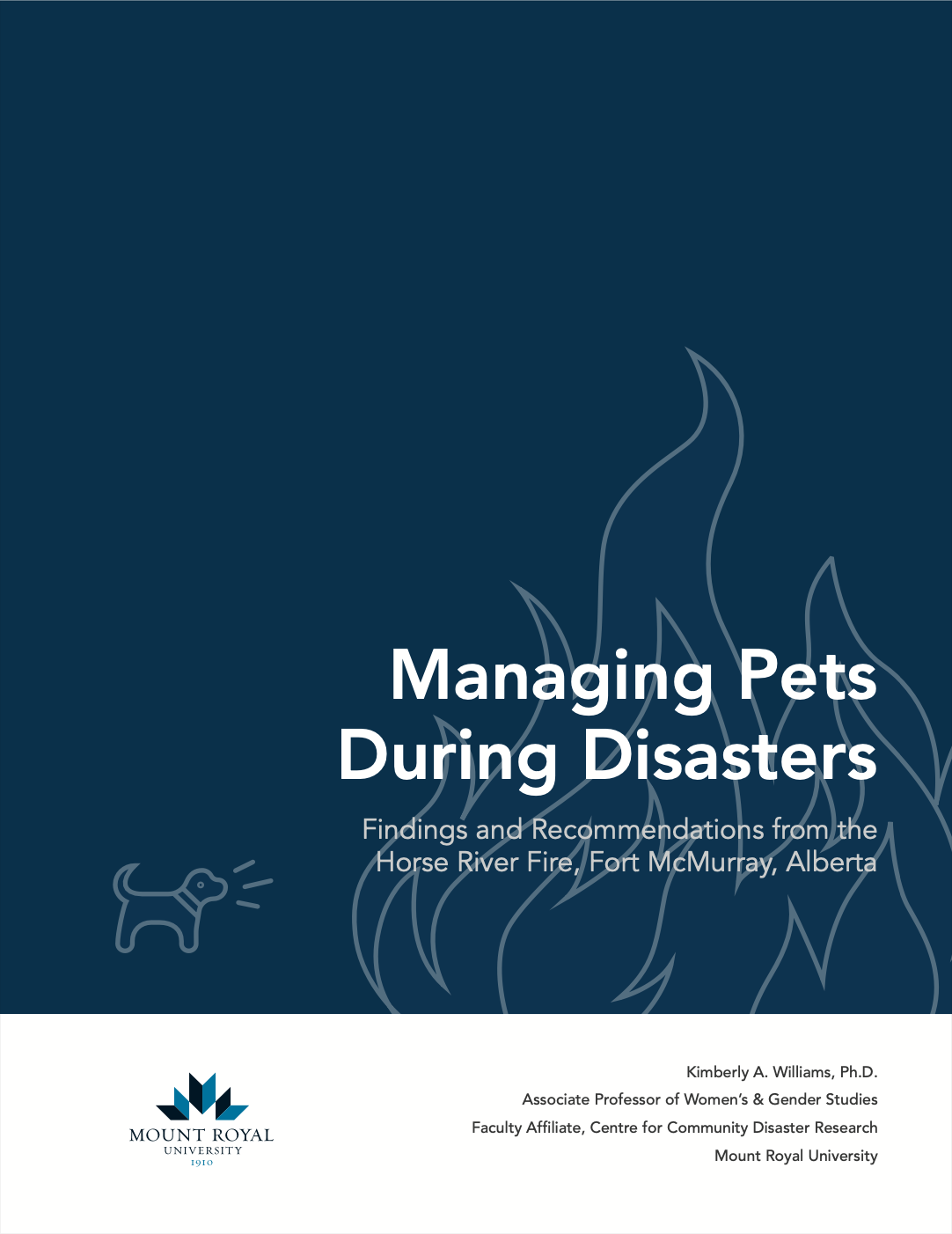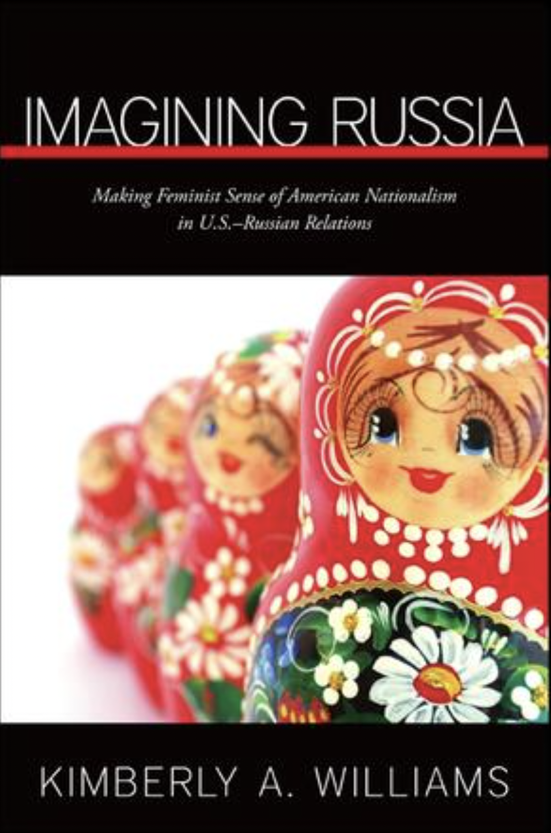|
|
Public Scholarship |
|
Winner, 2022 Knowledge Mobilization Award, Mount Royal University
- Shifting perspectives: Addressing barriers to care for sex workers in Alberta. For SafeLink Alberta, with E. Robinson, et al. January 29, 2024. safelinkalberta.ca/toolkits/
- "Reckoning with the Past: The Calgary Stampede Requires a Cultural Overhaul." Medium. August 25, 2023.
- “Without emphasizing women, Calgary’s post-pandemic recovery plan is doomed to failure.” Calgary Herald, May 2, 2022.
- “Stampede: Misogyny, White Supremacy, and Settler Colonialism.” Invited guest on Alberta Advantage Podcast, July 21, 2021.
- “Mavericks, Too.” In YYC Portraits of People by Sheri-D Wilson, 2020.
- “Booze, Broads & Brothels,” Invited guest on Women’s March Canada Podcast, January 26, 2019.
- Managing Pets During Disasters: Findings and Recommendations from Fort McMurray, Alberta. Calgary, Alberta: Mount Royal University, Centre for Community Disaster Research, 2018. Available on PreventionWeb: www.preventionweb.net/publications/view/62132
- “OVERDUE: Gender Justice in Alberta,” Pecha Kucha Night #35, Calgary Public Library, November 5, 2018.
- “Evacuating Family Pets from the Fort McMurray Wildfire,” Resilient Calgary, Centre for Community Disaster Research, Mount Royal University, Calgary, May 16, 2017.
|
“OVERDUE: Gender Justice in Alberta,” Pecha Kucha Night #35, Calgary Public Library, November 5, 2018.
|
“Evacuating Family Pets from the Fort McMurray Wildfire,” Resilient Calgary, Centre for Community Disaster Research, Mount Royal University, Calgary, May 16, 2017
|
|
|
Books |
|
Stampede: Misogyny, White Supremacy, and Settler ColonialismFERNWOOD PUBLISHERS, 2021
2022 Nominee, Best Book in Canadian Studies
In this first-ever intersectional interrogation of the settler colonial roots of Canada's oldest and largest western heritage festival, Williams exposes the complicity of the annual Calgary Stampede, Canada’s hugely popular rodeo and western heritage festival, in producing and sustaining the poor status of women, queers, and other Others here in Calgary.
The annual Stampede operates as a ten-day keg party for the country’s oil and gas industry and a major fundraiser for politicians of all stripes. It is also notorious as an internationally renowned sex tourist destination. Using a diverse archive, including forms of civic culture, photography, print advertisements, news coverage, poetry, and social media, the project utilizes a combination of archival research, media studies, participant observation, and narrative and discourse analyses to examine the urban culture that exists in Calgary because of Stampede. Download the introduction, "What the F*ck?" here. |
Praise for StampedeAn amazing example of how to analyze iconic Canadian culture and tradition in an accessible and engaging manner. This book reflects a vital call for Canadian scholars and students to continue to explore the role of settler colonialism and sexism that proliferate in the public and private spaces intended to foster Canadian nationalism. STAMPEDE is edgy, personal, and theoretical." (Victoria Kannen, Co-editor of The Spaces and Places of Canadian Popular Culture) |
It is exciting to read a book that boldly scrutinizes the Calgary Stampede as both a result and a perpetuator of settler colonialism. The argument is accessible and convincing. Even though Williams’ book provides a detailed deconstruction of one example of a location-specific cultural spectacle, Stampede reminds us of the importance of challenging our regional cultural myths in light of settler colonialism and heteropatriarchy. (Susan Joudrey, Dalhousie University) |
|
Check out the Virtual Book Launch from July 8, 2021, co-sponsored by Fernwood Publishers and Shelf Life Books.
|
Check out the special Stampede edition of the Alberta Advantage Podcast, where Kim and host Kate Jacobson talk all things sexist, racist, and settler colonial about this event that consumes Calgary for ten days every July and beyond. |
|
Notelets of Filth:
|
Managing Pets During Disasters: Findings and Recommendations from the Horse River FireMOUNT ROYAL UNIVERSITY, 2018
Featured on the website of the United Nations Office of Disaster Risk Reduction
Examines the emergency and disaster management (EDM) protocols that guided the the approach to family pets left behind during the mandatory evacuation of the northern city of Fort McMurray, Alberta during the Horse River wildfire in May 2016. Based on interviews with key stakeholders, findings reveal that although first responders adhered successfully to current best practices of EDM, those best practices rendered companion animals largely invisible. Research also shows that the expertise of local animal welfare organizations, run largely by white women volunteers, in overseeing large scale animal care was misrecognized and devalued by professional first responders who are overwhelmingly white cismen. The report provides a number of recommendations for municipal and provincial policymakers, first responders, and animal welfare organizations, arguing that continued failure to make family pets a permanent feature of EDM planning and implementation puts pets, civilians, and first responders at risk.
|
Imagining Russia: Making Feminist Sense of American Nationalism in U.S.-Russian RelationsSTATE UNIVERSITY OF NEW YORK PRESS, 2012
2009 Co-Winner, SUNY Press First Book/Dissertation Prize
in Women’s and Gender Studies Imagining Russia uses U.S.–Russian relations between the fall of the Soviet Union in 1991 and the U.S.-led invasion of Iraq in 2003 as a case study to examine the deployment of gendered, racialized, and heteronormative visual and narrative depictions of Russia and Russians in contemporary narratives of American nationalism and U.S. foreign policy. Through analyses of several key post-Soviet American popular and political texts, including the hit television series The West Wing, Washington D.C.'s International Spy Museum, and the legislative hearings of the Freedom Support Act and the Trafficking Victims Protection Act, Williams calls attention to the production and operation of five types of "gendered Russian imaginaries" that were explicitly used to bolster support for and legitimize U.S. geopolitical unilateralism after the dissolution of the Soviet Union, demonstrating the ways that the masculinization of U.S. military, political, and financial power after 1991 paved the way for the invasion of Iraq in 2003.
|
Praise for Imagining RussiaThis is an outstanding book and an excellent example of feminist IR analysis. The thesis and objectives are to show the ideological causes of (asymmetrical and deteriorating) U.S.–Russian relations, which Williams convincingly argues are rooted in gendered understandings.” (Valentine M. Moghadam) |
Williams has written a masterful look at the gendered rhetoric produced in the West (and sometimes by Russians themselves) to describe post-Soviet Russia in the aftermath of the Cold War … Highly recommended." (CHOICE) [T]his bold scholarly project [makes] starkly visible the gendered mechanisms of IR, contribut[ing] to broader efforts to confront the injustices of both U.S. geopolitical unilateralism and the global oppression of women." (Janet Dean, English & Cultural Studies, Bryant University) |
[C]ontributes meaningfully to our understanding of how popular perceptions about countries are formed and how they shape foreign policy decisions. Most notably, it adds to the scholarship on the cultural and ideational dimensions of international relations, which is a necessary complement to the large body of work on materialist approaches to the discipline.” (Pamela Jordan, Harvard University’s Davis Centre for Russian & Eurasian Studies) |
|
|
Articles + Chapters |
|
- “From Classroom to Pavement: Creating a Walking Tour of Calgary’s Historic Sex Trade Industry,” in Public Feminisms: From Academy to Community, ed. Carrie N. Baker and Aviva Dove-Viebahn. Lever Press, 2023. https://www.jstor.org/stable/10.3998/mpub.12682117.9
- “On Teaching Emilia as Intersectional Feminist Praxis,” in Notelets of Filth: A Companion Reader to Morgan Lloyd Malcolm’s Emilia, ed. Laura Kressly, Aida Patient, and Kimberly A. Williams. Routledge, 2023.
- “‘Burn the Whole F*cking House Down!’: Black Feminist Lessons for Joyful Rage,” in Notelets of Filth: A Companion Reader to Morgan Lloyd Malcolm’s Emilia, ed. Laura Kressly, Aida Patient, and Kimberly A. Williams. Routledge, 2023.
- “Marching, Teaching, and Crossing Borders: A Transnational Conversation," with Jennifer Nish and L. Ayu Saraswati, in L. Ayu Saraswati and Barbara Shaw, ed. Feminist and Queer Theory: An Intersectional and Transnational Reader, pp. 426-431. Oxford University Press, 2020.
- “Gender Matters at the Centennial Calgary Stampede Parade,” in Victoria Kannen and Neil Shyminsky, ed. The Spaces and Places of Canadian Popular Culture, pp. pp. 297-308. Canadian Scholars Press, 2019.
- “Women@Web: Cyber Sexual Violence in Canada,” in Introduction to Women’s Studies: A Reader, ed. L. Ayu Saraswati, Barbara Shaw, and Heather Rellihan, pp. 496-500. Oxford University Press, 2017.
- “The Vagina Monologues: Theoretical, Pedagogical and Geopolitical Concerns,” in Transnational Borderlands in Women’s Global Networks: The Making of Cultural Resistance, ed. Clara Roman-Odio and Marta Sierra, pp. 203-219. Palgrave Macmillan, 2011.
|
|
Reviews |
|
- Invited review of Gender Violence in Russia: The Politics of Feminist Intervention, by Janet Elise Johnson (Indiana University Press, 2009), International Feminist Journal of Politics, vol. 13, no. 2 (June 2011): 292-294.
- Invited review of Globalization and Militarism: Feminists Make the Link, by Cynthia Enloe (Rowman and Littlefield, 2007), International Feminist Journal of Politics, vol. 10, no. 3 (September 2008): 429-430.
- Review of Russians in Hollywood, Hollywood’s Russians: Biography of an Image, by Harlow Robinson (Northeastern University Press), Journal of American Culture, vol. 31, no. 3 (September 2008): 336-337.





